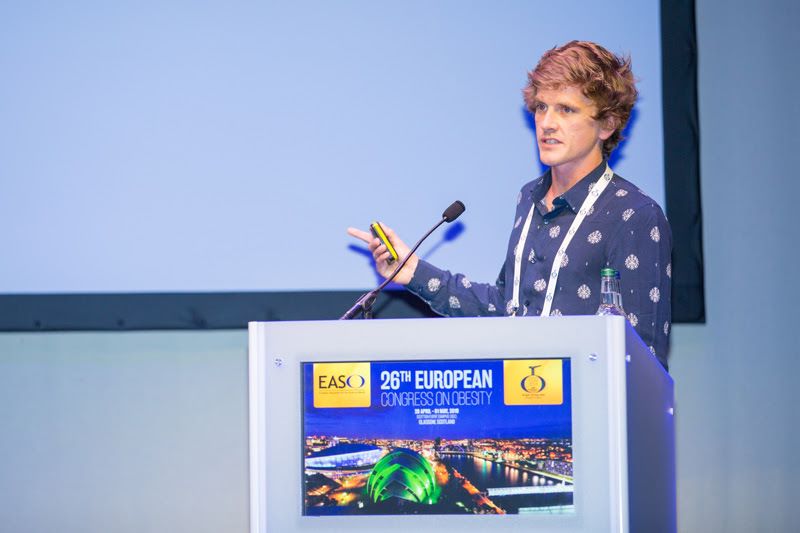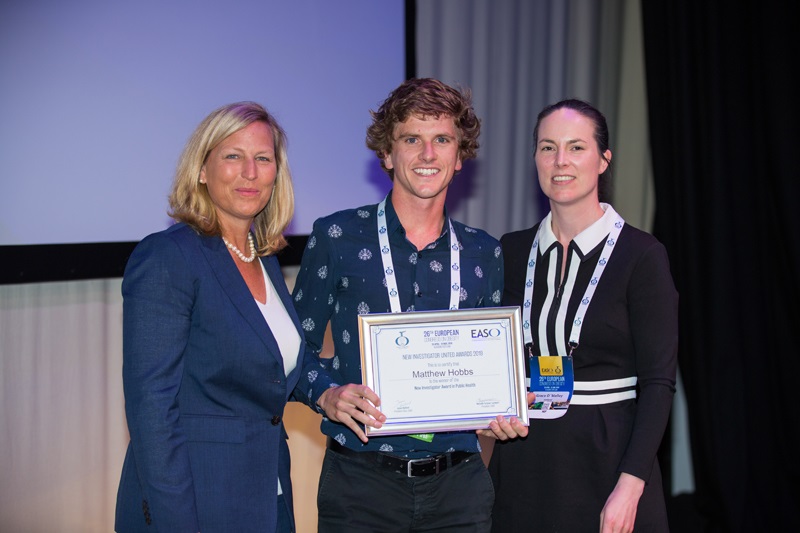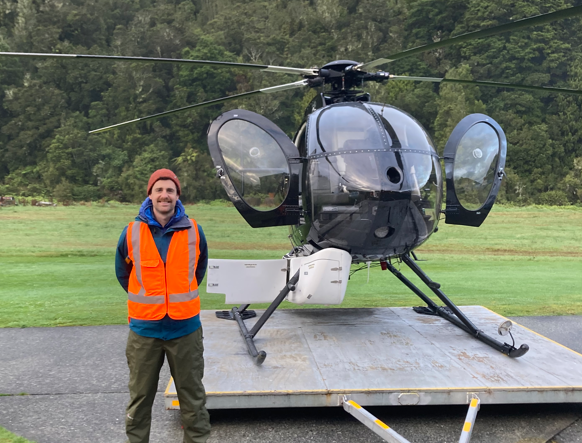Dr Matthew Hobbs, a researcher in the GeoHealth Laboratory within the GRI at the University of Canterbury, was awarded by The European Association for the Study of Obesity (EASO) the New Investigator Public Health Award, which marks out rising stars of obesity and public health in Europe. He received the award at the EASO 2019 Annual Congress on 2nd May 2019.
Dr Hobbs’ research focuses on the complexity of associations between environments and both adult and childhood obesity. As the winner of the award, Dr Hobbs presented his research – a combination of his postdoctoral research at UC (2018-Present) and his PhD (2013-2018) at Leeds Beckett University.
“It is difficult to envisage a future where obesity prevalence decreases in environments that actively promote it,” says Dr Hobbs. “Obesity is associated with a range of diseases, such as Type 2 diabetes, cardiovascular disease, arthritis and some cancers, so finding ways to prevent people becoming obese is important for the individuals, broader public health and for the public purse.”
Prof. Wilson, Director of the GRI, said “we congratulate Matthew on his well-deserved award, which highlights the significant role that geospatial
technology and analysis plays in garnering new insights into important health issues. It’s great to see researchers in the GeoHealth Lab. continuing to make a significant impact in this area.”
Recently, Dr Hobbs published one of the first longitudinal studies investigating if relationships between the environment and obesity differs by age. It illustrated that if a young adult’s recreational physical activity environment (for instance parks) provided opportunities to be physically active, risk of obesity was lower, however this relationship was less pronounced for older adults. The research is significant as it suggests that public policy makers need to consider the impact that environmental interventions may have across the lives of individuals, and could point to ways to combat obesity by considering how the environment impacts on different population groups.
He is currently working on several projects investigating links between child, parent and environment factors and how these may combine to influence the risk of obesity in childhood. You can keep up with his work here.




